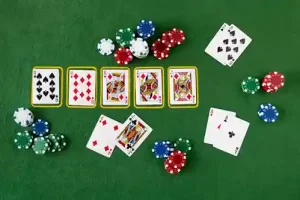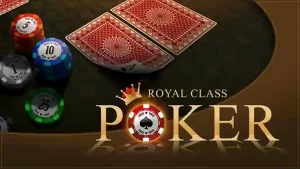One of the most common questions poker enthusiasts ask is, “What is a downswing in poker?” Understanding this concept is absolutely essential for players aiming to navigate the inevitable ups and downs of the game. Although downswings can be tough, there are effective strategies to manage them. So, join APALDO as we explore the causes of poker downswings and provide expert tips to help you bounce back stronger.
What is a Downswing in Poker?
For seasoned poker players, a downswing is a familiar experience. However, for beginners, it can be perplexing. In poker, a downswing refers to a sustained period of losing games, during which a player’s bankroll takes a significant hit. As a result, this can lead to stress, loss of focus, and a decline in overall performance.
Nevertheless, downswings are part of the natural variance in poker. In fact, every player will experience them at some point, regardless of their skill level. The key, however, to overcoming a downswing lies in maintaining patience, staying focused, and using it as an opportunity to improve your strategy.
Common Causes of a Downswing in Poker
Several factors can lead to downswings. Understanding these causes can help you avoid or minimize their impact. Here are some of the most common reasons for poker downswings:
1. Ignoring the Risks of Poker
One major cause of downswings is underestimating the inherent risks of the game. Even a seemingly small risk—like a 1% chance of losing—can lead to a downswing. It’s essential to recognize both the winning and losing probabilities and not solely focus on potential rewards.
2. Overconfidence After a Winning Streak
Overconfidence is another culprit. After a streak of wins, many players start to believe they’re invincible and underestimate the odds of losing. This can lead to poor decision-making and a subsequent downswing. Staying humble and aware of the game’s inherent risks is critical to long-term success.
3. Obsessing Over Winning and Losing
Many players become fixated on the idea of turning losses around, leading them to chase wins obsessively. This mindset can prolong downswings and increase frustration. In extreme cases, it may even lead to a player depleting their bankroll before they see another win. Patience and disciplined play are crucial in these situations.
Expert Tips to Overcome a Downswing in Poker
Knowing what causes downswings is the first step. Overcoming them requires practical solutions. Here are expert tips to help you navigate through a downswing:
1. Manage Your Bankroll Effectively
Effective bankroll management is the foundation of long-term success in poker. During a downswing, it’s essential to limit the stakes you play, ensuring they’re in line with your current bankroll. A smart approach is to divide your betting capital into smaller portions to prevent big losses and safeguard against running out of funds.
2. Learn from Experienced Players
Learning from experienced poker players who’ve successfully navigated through downswings can offer valuable insights. Study their strategies, analyze their gameplay, and learn from their mistakes. This can help you identify your own errors and improve your overall approach to the game.
3. Stay Calm and Focus on the Long-Term
Maintaining a calm and focused mindset is key during a downswing. Emotional decision-making can lead to bigger losses. Instead of getting discouraged by short-term setbacks, focus on the long-term game. Understand that every player—no matter how skilled—will face downswings, but the best players know how to handle them.
Conclusion
A downswing in poker is a tough yet inevitable part of the game. However, understanding the root causes and applying expert strategies can help minimize its impact. By managing your bankroll, learning from seasoned players, and maintaining a composed mindset, you can overcome downswings and emerge as a stronger, more resilient poker player.
Moreover, poker is a long-term game, and persistence, patience, as well as discipline are essential qualities for success. For even more expert tips and strategies, join APALDO and take your poker journey to the next level!











